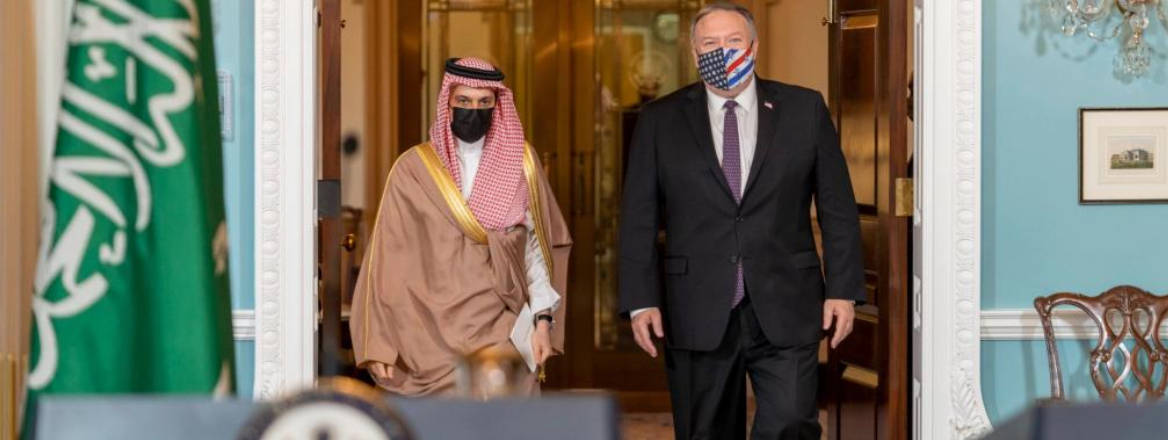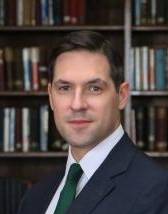Saudi Arabia and International Summitry: Hard Try, and Harder Times Ahead
The Saudis hosted a G20 summit overshadowed by the pandemic. It is not what they wanted, but the kingdom is working hard to reposition its international footprint.
This year’s G20 summit hosted by Saudi Arabia has come and gone without much fanfare; the significance of being held for the first time in an Arab capital has, perhaps inevitably, been overshadowed by other events.
The Excitement That Never Was
The kingdom’s government had devoted a huge amount of diplomatic energy to seeking consensus on a number of important global issues ranging from climate change, to women’s rights to providing debt relief for poorer countries. Predictably Saudi media hailed the summit as being of global significance, but the truth is that it was a muted affair that garnered very little attention outside of a handful of journalists focusing on the Middle East region. With half the world suffering from Zoom fatigue, a multilateral summit held over Zoom was hardly going to be a platform for mega headlines. And with jobs being lost around the world, daily life shuttered across multiple states and death tolls rising, you could forgive many of the world’s citizens for focusing more on immediate concerns than hifalutin conversation among the world’s richest countries.
It has been a stroke of bad luck for the Saudis. Riyadh had pinned hopes on the G20 being a big success that would then propel the kingdom to the forefront of global affairs, thereby providing a much needed publicity boost for Crown Prince Mohammed bin Salman, whose public image has been in the doldrums following the murder of Jamal Khashoggi – a prominent critic – at the hands of Saudi state agents two years ago. Since March, however, it has been clear that this year’s multilateral forums were likely to be a washout, a factor that the Saudis understood and reconciled themselves to.
Some Achievements
Perhaps of greatest import was an agreed communiqué that endorsed the Saudi-promoted ‘Circular Carbon Economy’ (CCE). Among the usual platitudes of such summits this should be seen as a notable success, especially given that Saudi Arabia is often painted as the ‘bad guy’ when it comes to climate change. Time will tell whether the CCE – an alternative economic model that takes into consideration the reuse, recovery and recycling of products and materials – really proves to be a mechanism for promoting sustainable development, but it makes a welcome change that Saudi Arabia is at least talking constructively about climate change and pushing forward resolutions, rather than being the stumbling block to climate change initiatives.
Looming over the process has also been the imminent departure of US President Donald Trump, a leader who has largely ignored the value of G20 summits, or indeed all multilateral bodies, thereby greatly undermining their efficacy. In counter flow to the established international orthodoxy and the joint CCE communiqué, Trump railed against the Paris Agreement on climate change and pointed accusatory fingers at other states whom he believed were worse offenders. His job done, Trump promptly returned to Twitter to produce a stream of election-related comments – hardly the ringing endorsement for the first Arab-hosted G20 summit that the Saudis were looking for.
Friends in High Places?
Although Trump allegedly bragged to a noted US journalist that he ‘saved Mohammed bin Salman’s ass’ it is difficult to know whether the four topsy turvy years of the Trump presidency have really been good for the Saudis. Ironically, Trump’s replacement, President-Elect Joe Biden, would have been far more comfortable providing the Saudis with the support and publicity that they were so desperately looking for at the G20, and he certainly would not have steamrolled their CCE communiqué. And this would have happened despite the seemingly endless stream of op-eds and other media commentaries predicting a frosty future four years for US–Saudi relations, once Biden comes to office.
Still, if we have learned anything from the G20 it is that Saudi Arabia can play an active role in world affairs if it chooses to. If the Saudis are serious about doing something on climate change, they will find the familiar face of former US Secretary of State John Kerry – now the Biden presidency’s ‘environment tsar’ – there to greet them. It will come as a relief to Riyadh that Kerry will not be extending his role to any dealings with Iran – the signature initiative of his previous government involvement – so they may find that it is possible to work constructively with the Biden administration after all.
However, one would not feel so optimistic, given recent events. No sooner had the G20 finished than social media swirled with rumours that Israel’s Prime Minister Benjamin Netanyahu engaged in a three-way meeting with the US and Saudi Crown Prince Mohammed bin Salman in northern Saudi Arabia. The Saudi denial was feeble and came too little, too late, only serving to reinforce the assumption that Netanyahu had, indeed, made the visit. The fact that senior officials close to the Israeli prime minister had leaked details of the ‘secret’ encounter only served to set tongues wagging as to what the meeting may have been about, and why such a secret meeting needed to be made public.
The exact details of the meeting are not clear, but whatever was said, both Netanyahu and Mohammed bin Salman have sent a clear message to the incoming Biden team that they are moving in lockstep on issues of mutual concern, be that on Iran or on the role of political Islam in the Middle East. Presenting a united front to the incoming administration, particularly with the support of the outgoing administration, should leave no doubt as to Saudi and Israeli preferences. These can be summed up as rejection of the Joint Comprehensive Plan of Action, without extensive consultation, input and approval from the region’s key US partners first.
Saudi Arabia may not have been able to strike it big on the world stage this year, but recent diplomatic manoeuvring suggests that it will not go into 2021 as a passive observer to world affairs.
The views expressed in this Commentary are the author's, and do not represent those of RUSI or any other institution.
WRITTEN BY
Michael Stephens
RUSI Senior Associate Fellow, RUSI International


